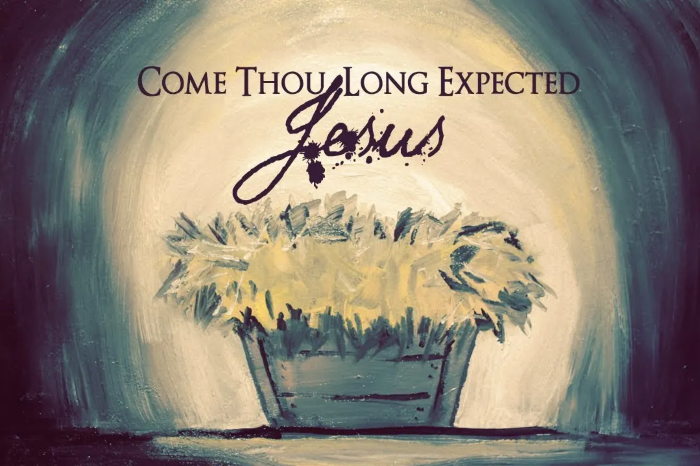Kia ora and Christmas greetings from Carey.
Every week I receive an email from the Economist magazine with a summary of the latest world news. Let me share with you some of the recent headlines:
- What to fear about generative AI.
- How to worry wisely about artificial intelligence.
- Why fear is spreading in financial markets.
- Investors have reason to fear a strong economy.
- How scary is China?
- Fear of Chia is pushing India and Japan into each other’s arms.
- A year after its liberation, Kherson still knows fear – and defiance.
- How fear has shaped human affairs.
Notice a theme? Fear. Fear hangs like a shadow across our world. This Christmas, in the face of fear, what might the Lord want to say to you and your community?
Listen to the words of Isaiah 9:2-7:
2 The people walking in darkness
have seen a great light;
on those living in the land of deep darkness
a light has dawned.
3 You have enlarged the nation
and increased their joy;
they rejoice before you
as people rejoice at the harvest,
as warriors rejoice
when dividing the plunder.
4 For as in the day of Midian’s defeat,
you have shattered
the yoke that burdens them,
the bar across their shoulders,
the rod of their oppressor.
5 Every warrior’s boot used in battle
and every garment rolled in blood
will be destined for burning,
will be fuel for the fire.
6 For to us a child is born,
to us a son is given,
and the government will be on his shoulders.
And he will be called
Wonderful Counselor, Mighty God,
Everlasting Father, Prince of Peace.
7 Of the greatness of his government and peace
there will be no end.
He will reign on David’s throne
and over his kingdom,
establishing and upholding it
with justice and righteousness
from that time on and forever.
The zeal of the Lord Almighty
will accomplish this.
These words were first spoken to people living under the shadow of fear. The prophet Isaiah was speaking to people who were very afraid. Their world was literally collapsing. It was the eighth century before the birth of Christ. Assyria, the dominant political and military power in the Middle East, was slowly devouring the smaller, less powerful nations around her. And in 732 BC the King of Assyria, Tiglath-Pileser, invaded the northern kingdom of Israel, which we now know as Galilee. Within 10 years, Israel was completely destroyed.
Even as Isaiah spoke these words, the Assyrian armies were poised at the border of Judah. The people could hear the boots of the trampling soldiers. They could see the uniforms stained in blood. They’re know they’re no match for the forces of death and destruction at their border. They know their world could collapse at any moment. Darkness was descending on the people of Judah. The shadow of fear was hanging over them.
Ever felt like that? Ever felt like your world might collapse at any moment? I have. I often feel like that.
Well, into that distress and darkness, the word of the Lord came: Do not fear. Do not be afraid. Why? Because the Lord Almighty, the Lord of hosts, will deliver his people from their enemy. What will that look like? The first half of our passage describes what God will do:
- He will make light shine in the darkness (v. 2).
- He will make joy spring up in the gloom (v. 3).
- He will make freedom break through oppression (v. 4).
- He will make peace triumph over war (v. 5).
Four great promises. Light in the darkness. Joy in the gloom. Freedom in oppression. Peace in strife. That’s what God promises to do for his people living in fear. But how will he do it? Look at the second half of the passage. Verse 6:
For to us a child is born,
to us a son is given,
and the government will be on his
shoulders.
And he will be called
Wonderful Counsellor,
Mighty God,
Everlasting Father,
Prince of Peace.
When this child is born, when this son is given, the four great promises will be fulfilled. So who is this child to be born? Look at his names. He’ll be called “Wonderful Counsellor.” The word translated “wonderful” means incomprehensible, inconceivable, supernatural. The child to be born will be a counsellor who can guide us with extraordinary, divine wisdom and insight and knowledge.
“Mighty God.” The word translated “mighty” means hero or champion or warrior or strong one. This child to be born will be the champion of his people. With the very strength of God, he will deliver his people from their enemies.
“Everlasting Father.” Nowhere else in ancient literature is this term used as a title for a prince or a king. It speaks of a father’s commitment to his children, a father’s compassion for his children, a father’s care for his children. This child to be born will embody this kind of faithfulness.
And “Prince of Peace.” The word “prince” suggests an army commander. But a commander whose fighting ironically means the end of fighting, a commander who will bring peace to his people. The Hebrew word for peace is shalom – which means wholeness, fullness, flourishing, blessing.
So who is this child to be born, this child who will embody these four names? Gospel writers like Matthew and Luke tell us that his name is Jesus. Because Jesus was born to us, we can have hope in the face of fear. Because Jesus was given to us, the promises of vv. 2-5 can be fulfilled. So let’s look at these four promises, and what they mean for us today.
Light in darkness
Because the child has been born, we can know light in darkness. Look at v. 2:
The people walking in darkness
have seen a great light;
on those living in the land of deep darkness
a light has dawned.
In the Bible the motif of darkness can symbolise many things. It can symbolise evil, trouble, or death. Remember Psalm 23: “even though I walk through the darkest valley [or the valley of the shadow of death], I will fear no evil, for you are with me.” Darkness can also symbolise the absence of God. When Jesus was crucified, Matthew says that “darkness came over all the land [and] Jesus cried out in a loud voice …. My God, my God, why have you forsaken me?”
So darkness can represent evil and death. It can represent the absence of God. It can also, thirdly, symbolise blindness or confusion. Last week my three young adult children chose for some reason to do the Tiktok baking challenge. Emma wore a gag so that she couldn’t speak. Daniel wore earmuffs so that he couldn’t hear. And Sophie wore a blindfold, so that she couldn’t see. Together, they tried to bake some Christmas cookies. I watched from the dining room. I thought to myself, I’m not going to eat those cookies. And I also thought to myself, I feel the most for Sophie, wandering blindly around the kitchen, groping clumsily in the darkness.
Do you ever feel like you’re wandering in the darkness, groping for the way ahead? You’ve received a difficult diagnosis from the doctor. You’ve read a troubling report at work. You feel confused. You feel lost. You feel alone. You want to cry, “My God, my God, why have you forsaken me?”
But this text says that because the child has been born, darkness does not have the last word. Jesus, the light, shines in the darkness and, as the apostle John says, the darkness cannot overcome it or extinguish him. The One who said, “let there be light,” the One who can turn darkness into light, on the cross experienced the complete darkness of his Father’s absence, so that we never have to. As you walk through the darkest valley, you need fear no evil, for he is with you. The Wonderful Counsellor will guide you. Because Jesus has been born, you can know light in the darkness.

Principal
Joy in gloom
But there’s a second promise here. Because the child has been born, we can know joy in gloom. Look at v. 3:
You have enlarged the nation
and increased their joy;
they rejoice before you
as people rejoice at the harvest,
as warriors rejoice
when dividing the plunder.
Isaiah is drawing on two images from his world. The joy of a harvest gathered, when the crops are secure from the threats of weather and abundance is guaranteed for another season. And the joy of a battle won, when the enemy has been defeated and the victorious soldiers divide the plunder. In our world, the image might be the Black Ferns team screaming in delight as the final whistle declares them world champions. Or Christopher Luxon and his campaign team cheering with delight as the final results roll in on election night. Or John Tucker 25 years ago listening with delight to the most beautiful woman in the world say the words, “I do.” Joy.
But for many people, this season is not a time of deep joy. It’s a time of deep sadness. This year has brought for me grief and pain and gloom. My brother died unexpectedly and tragically in the middle of the year. Then my mum died suddenly just a few weeks later. And there have been other griefs. For others of us, this season is not a time of deep grief, but nor is it a time of deep joy. Because our joy, if we’re honest, rests on the shifting sand of our changing circumstances. So what joy we have is like blue sky in Auckland this year. It’s so fleeting. It’s so often overshadowed by clouds of anxiety and fear.
But this text says don’t keep looking just at your circumstances. Don’t keep looking just at your losses, your disappointments, your needs. Look at the child. Your divine hero, your divine champion, your divine warrior has won a glorious victory for you. The spoils of his victory are almost too good to believe. Because of who Jesus is and what he’s done: you have the gift of God’s intimate presence with you; you have the gift of God’s complete acceptance of you; you have the gift of God’s Holy Spirit in you; you have the gift of a new heart, new relationships, a new family, a new purpose. You get to participate in his renewal of this world, a world in which all things are being made new, until one day there will be no more tears, because evil will be finally and fully destroyed. Because the child was born, joy can break into the gloom, and sorrow will not have the last word.
Freedom in oppression
And because the child has been born, we can know freedom in oppression. Look at v. 4:
For as in the day of Midian’s defeat,
you have shattered
the yoke that burdens them,
the bar across their shoulders,
the rod of their oppressor.
In the ancient near east, yokes were placed across the shoulders of captives and slaves to make them carry heavy burdens. The yoke is a metaphor for oppression. The kind of oppression that people of Israel experienced centuries before when the armies of Midian invaded their country, and like swarms of locusts devoured their land. In desperation, the Israelites cried out to the Lord for help – and he helped. With God fighting for them, Israel’s embarrassingly small force of just 300 soldiers somehow managed to defeat the swarming masses of Midian’s much larger army.
Are you living under the oppression of an occupying force? It may not be a superpower like Assyria, or Midian, or Russia, but it’s just as powerful and oppressive. Is it addiction? Is it pornography? Is it perfectionism? Are you captive to a form of imposter syndrome? Are you consumed by your work?
Do you struggle with self-hatred, or crippling guilt, or bitterness and unforgiveness? Is it selfishness? Are you, in Martin Luther’s phrase, “curved in on yourself”? Maybe you’ve been walking with Jesus for many years, but you’re still labouring under a power that has been oppressing you for years. The yoke’s been on you for so long its worn thick callouses on your shoulders.
But this text says that because this child has been born, oppression does not have the last word. Whether it’s chemical or emotional or psychological or physical or political or spiritual or economic, oppression does not have the last word. Jesus is an Everlasting Father. He’s compassionate and faithful – and he can bring freedom, in unexpected, surprising ways.
Peace in strife
Because the child has been born, we can know light in darkness, we can know joy in gloom, we can know freedom in oppression, and finally we can know peace in strife. Look at v. 5:
Every warrior’s boot used in battle
and every garment rolled in blood
will be destined for burning,
will be fuel for the fire.
This is a promise of peace, a promise that our country so desperately needs to hear. A little whole ago I received a letter from the Shine foundation, an organisation supporting victims of domestic violence. Did you know that New Zealand has the worst rate of domestic violence and child abuse in the developed world? On average police attend a family violence incident every 5 minutes, and the research indicates that 80% of incidents go unreported. It’s estimated that 1 in 3 Kiwi women will experience either physical or sexual violence from a partner during their lifetime. So many Kiwi homes tonight will be filled with violence and fear. In so many Kiwi hearts tonight, there is a desperate need for peace.
Where do you need peace? At home? In your marriage? With your son, your daughter? With a friend. Is it at work where you need peace? With that colleague? Because this child is born, hostility and strife, hatred and violence do not have the last word. The Prince of Peace can establish peace in the midst of conflict.
Do you believe this? Maybe you’re thinking, if the child has been born, if the son has been given, if the promise has been fulfilled, why does darkness still hang over the earth? Why does gloom still engulf my soul? Why does the grip of addiction and oppression seem to tighten? Why is there still so much injustice and war? Why?
The light and joy the freedom and peace of Jesus are experienced wherever he’s allowed in, and invited to work, and the government rests on his shoulders. The darkness and gloom the bondage and strife of our time do not declare that the child has not come. They declare that the child has not been given access.
One of my favourite Christmas carols starts with these words, “Joy to the world the Lord has come.” What’s the next line? “Let earth receive her king. Let every heart prepare him room.” Has earth received her king? Has every heart prepared him room? It’s when the child is allowed in that darkness is pierced by his light, and sorrows are lifted by his joy, and oppression is broken by his freedom, and war is overwhelmed by his peace.
Invite him in.
Come, thou long expected Jesus,
born to set thy people free;
from our fears and sins release us,
let us find our rest in thee.Israel’s strength and consolation,
– Charles Wesley
hope of all the earth thou art;
dear desire of every nation,
joy of every longing heart.
Born thy people to deliver,
born a child and yet a King,
born to reign in us forever,
now thy gracious kingdom bring.
By thine own eternal spirit
rule in all our hearts alone;
by thine all sufficient merit
raise us to thy glorious throne.


Great message Thankyou
Thank you for the encouragement John.
These verses speak so deeply in an era of so much disappointment and poor mental health raging in our land. – it’s so worth sharing if I may.
You make history SO enjoyable! I hated the subject at school!
But somehow you changed that for me. 🤣